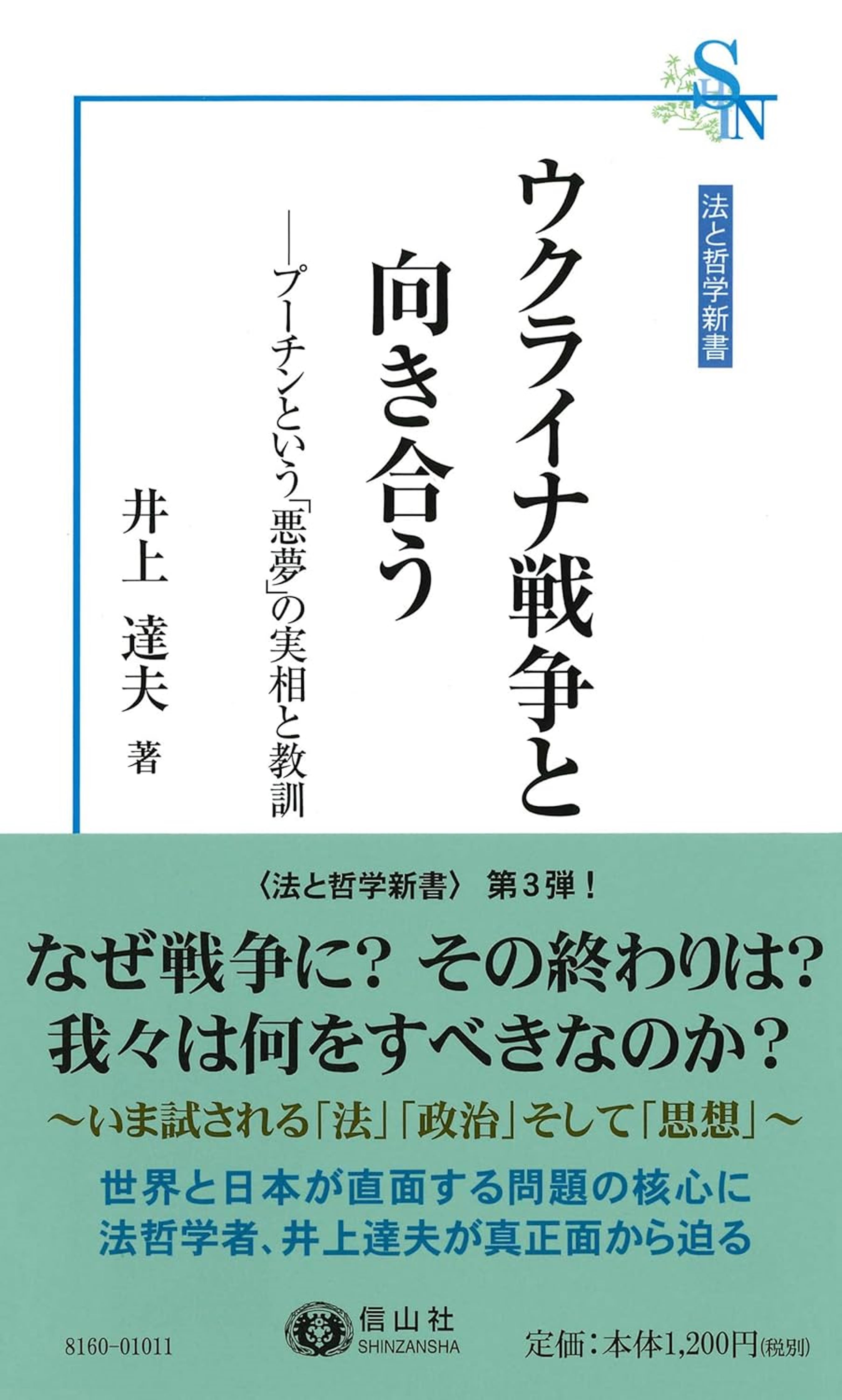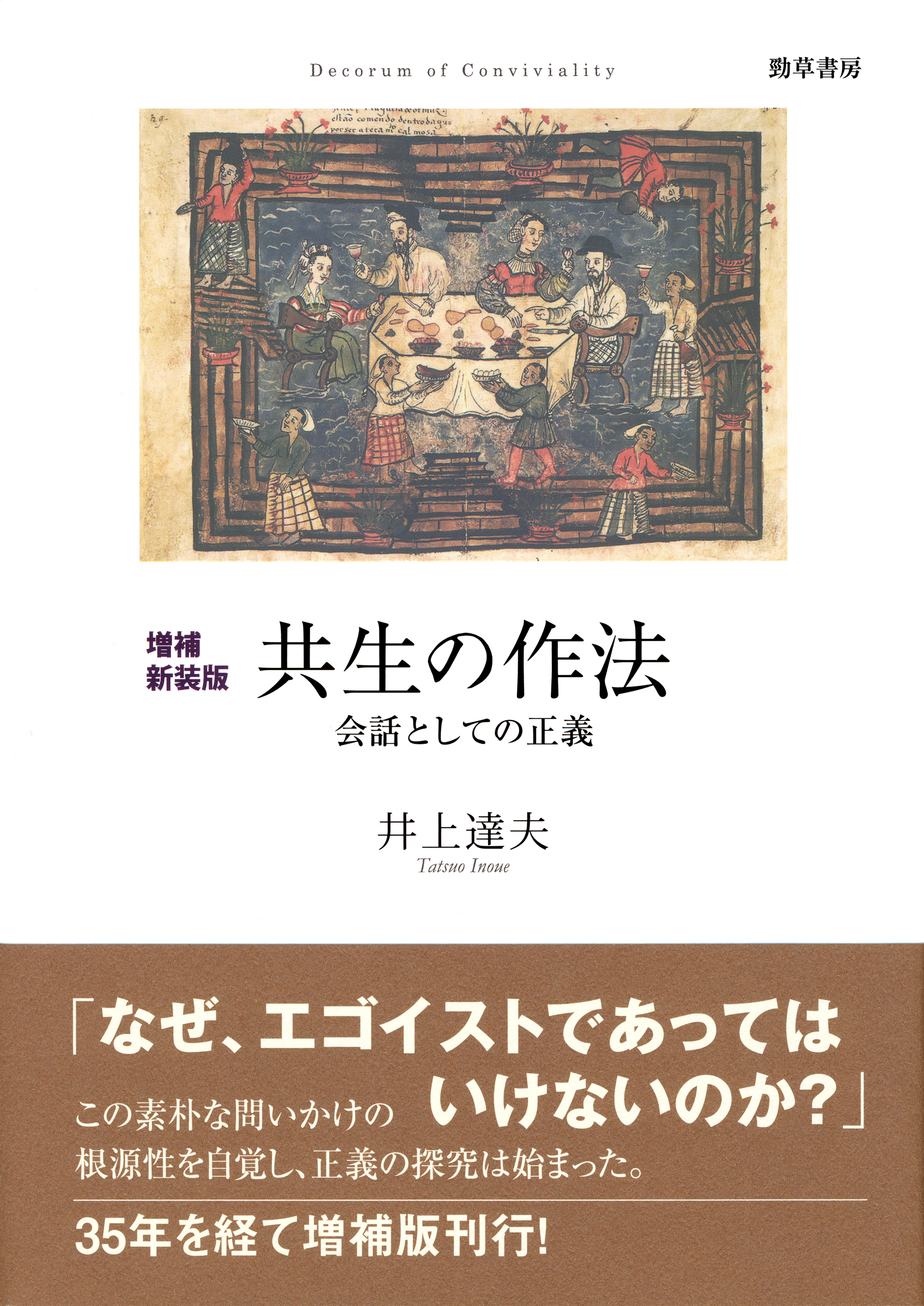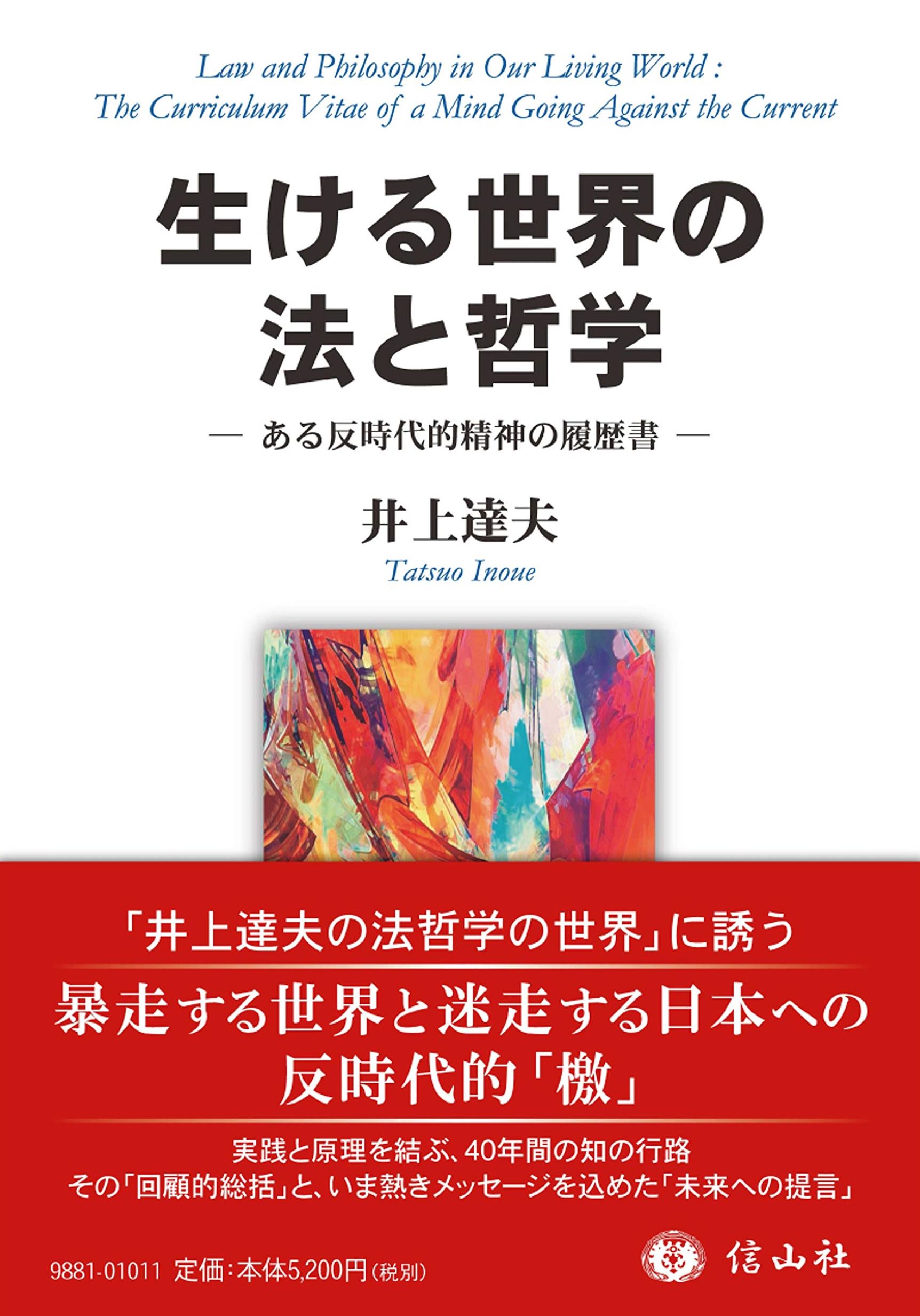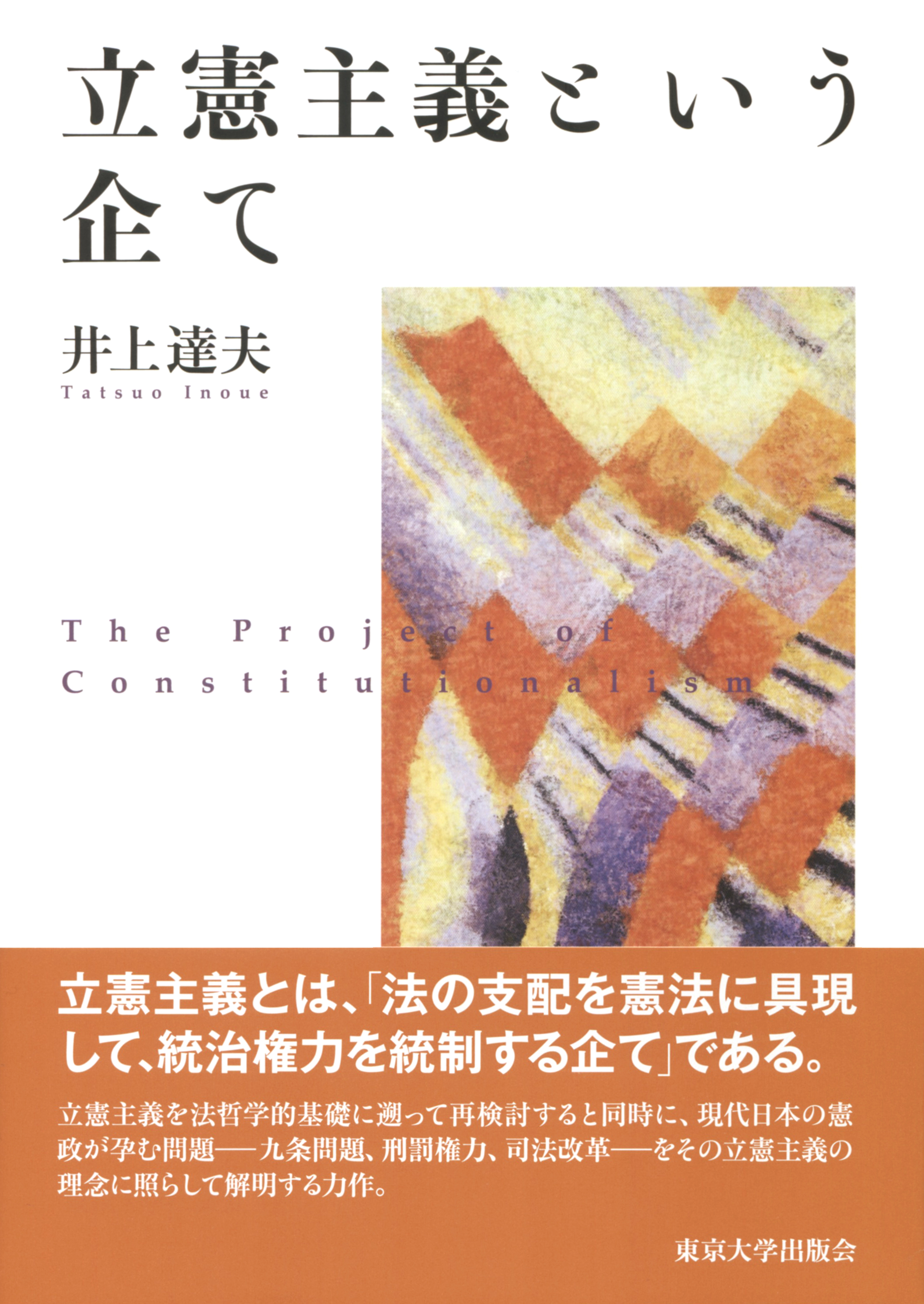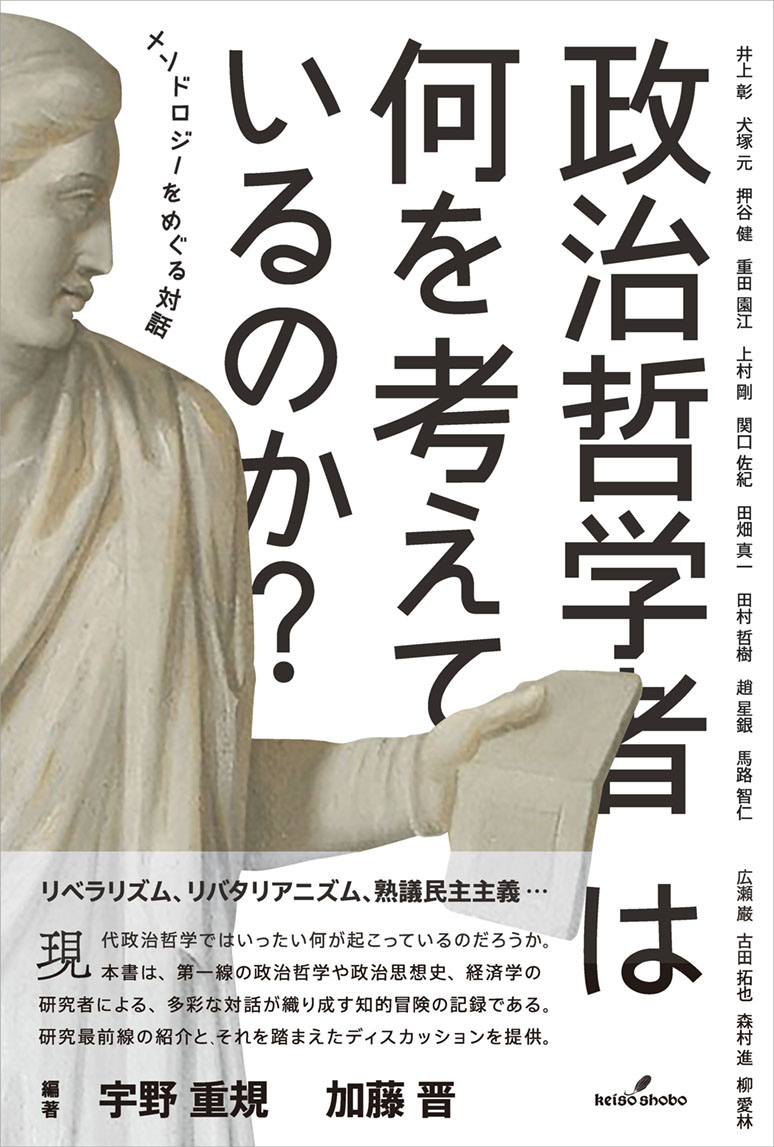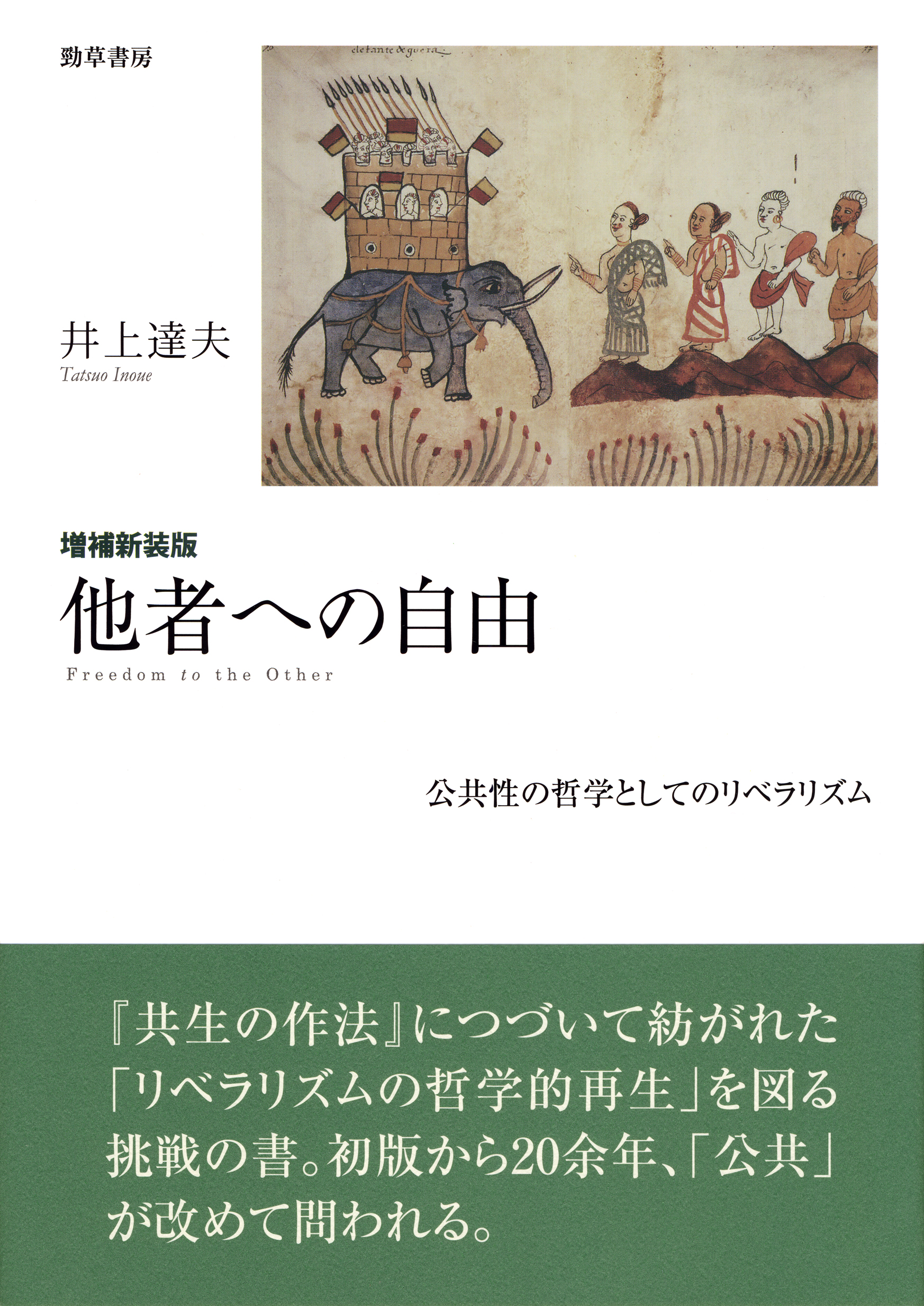
Title
[New Enlarged Version] Tasha e no Jiyū (Freedom to the Other: Liberalism as a Philosophy of Public World)
Size
308 pages, A5 format
Language
Japanese
Released
April, 2021
ISBN
978-4-326-40391-2
Published by
Keiso Shobo
Book Info
See Book Availability at Library
Japanese Page
This book is a newly formatted, extended version of Freedom to the Other: Liberalism as a Philosophy of Public World first published in 1999. As the publisher of the previous version (Sōbunsha) no longer exists, it was decided that Keiso Shobo Publishing would reprint the book as a newly formatted, extended version. Over my research career, I have sought to philosophically reconstruct liberalism based on the concept of justice and to elucidate the legal and political implications of this reconstruction. The book advances philosophical foundations of my theory of liberalism and argures for the following theses.
First, as a philosophy, liberalism is a critique of power whose purpose runs parallel to Kant’s critique of reason, which sought to determine the limits and scope of reason. As such, the aim of liberalism is not to completely disavow power but, rather, to determine its limits by identifying legitimate justifications for the exercise of power. It is from this standpoint that the book criticizes the politics of fear and totalitarianism (e.g., Jacobinism and Marxism), which seek to eradicate opposition through the dictates of dogmatic reason, while elucidating the limitation of schemes such as market anarchism and communitarian anarchism that completely reject state power and advocate alternative conceptions of social order without state power.
Second, the foundational principle for liberalism’s critique of power is the concept of justice. Here, the term concept of justice is differentiated from the conceptions of justice that compete when determining specific criteria of justice and refers to principles that serve as the common constraints upon these conceptions. The normative core of the concept of justice is the prohibition of non-universalizable discrimination between oneself and others, which implies the requirement of reversibility wherein any demand placed on the other or one’s behavior towards the other should be justifiable even when the positions or viewpoints of the self and the other are reversed.
Third, this requirement of reversibility also implies anti-perfectionism, which requires that the justification for a conception of justice should be independent of conflicting conceptions of the good life held by the self and the other and that conceptions of the good life should be constrained by conceptions of justice that are justified in this manner. Regarding this point, the book identifies the deficiencies of communitarianism, civic republicanism, and other perfectionist critiques of liberalism and defends a liberal conception of the public world that fairly accommodates others with viewpoints that differ from one’s own.
Fourth, the book elucidates the deficiency of the conventional understanding of liberalism—i.e., that freedom is the foundational principle of liberalism—by critically reexamining the concept of freedom. The book first identifies confusing aspects and flaws of Isaiah Berlin’s distinction between negative and positive freedom, which has become the dominant framework for understanding freedom. Thereafter, the book identifies the core objective of freedom as self-empowerment and discusses how freedom, so conceived, comprises what Nietsche called the Will to Power (der Wille zur Macht), a drive for controlling or assimilating others who seek to prevent one from achieving his or her objectives. The book goes on to argue that setting the concept of justice as the foundational principle of liberalism and constraining freedom based on this principle will foster a freedom to the other in which we open ourselves to self-transformation through the attempt to fairly contact with and accommodate others.
In the extended part of the book, I point out errors in attributing the collapse of the dream of global prosperity in the post-Cold War era to liberalism and, thereupon, argue that the key to overcoming this collapse is to develop a liberalism based on a concept of justice such as that proposed in the book. Furthermore, I elucidate differences between my views and the views of John Rawls, who is generally believed to defend a justice-based conception of liberalism and point out that Rawls fell into political dogmatism because he failed to capture the full normative significance of the universalist concept of justice as distinct from specific conceptions of justice and yielded to the temptation to sanctify his alleged political conception of justice under the disguise of an overlapping consensus that cannot exist in the circumstances of politics.
(Written by INOUE Tatsuo, Professor Emeritus, Graduate Schools for Law and Politics / 2022)



 Find a book
Find a book


